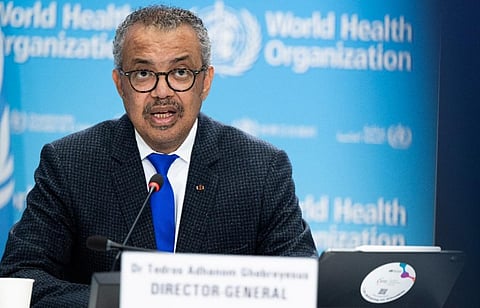

This story has been updated
Read Down To Earth's over three-year-long coverage of the COVID-19 pandemic consisting of over 10,000 stories
The World Health Organization (WHO) on May 5, 2023, officially announced an end to the global health emergency it had declared three years ago due to the novel coronavirus disease (COVID-19) pandemic, bringing to a close one of the most destructive and painful periods in human history.
The global health body first learnt of pneumonia-like cases from China 1,221 days ago. WHO Director-General Dr Tedros Adhanom Ghebreyesus declared the contagion a public health emergency of international concern on January 30, 2020.
At the time, less than a hundred cases had been reported outside China, a figure which has since multiplied beyond imagination and has caused at least seven million deaths according to WHO. Unofficial estimates peg the figure in excess of 20 million.
The burden the pandemic put on health systems was unprecedented, one that countries are still reeling from till today.
The decision to end the global health emergency was arrived at during the 15th meeting of the WHO’s Emergency Committee held on May 4. The United Nations body cited careful consideration of data by the Committee to note that the pandemic has been on a downward trend for the past year.
“COVID-19 has been so much more than a health crisis. It has caused severe economic upheaval, erasing trillions from GDP, disrupting travel and trade, shuttering businesses, and plunging millions into poverty,” Ghebreyesus said.
He added: “COVID-19 has exposed and exacerbated political fault lines, within and between nations. It has eroded trust between people, governments and institutions, fuelled by a torrent of mis- and disinformation. And it has laid bare the searing inequalities of our world, with the poorest and most vulnerable communities the hardest hit, and the last to receive access to vaccines and other tools.”
While daily cases have come down considerably, COVID-19 was still claiming a life every three minutes, data from just last week shows.
This is only testament to the fact that the virus continues to remain a global health threat. Keeping this in mind, and the understudied phenomenon of long COVID, it remains critical to not let our guards down, according to the director-general.
In the same vein, Tedros said: “The worst thing any country could do now is to use this news as a reason to let down its guard, to dismantle the systems it has built, or to send the message to its people that COVID-19 is nothing to worry about. What this news means is that it is time for countries to transition from emergency mode to managing COVID-19 alongside other infectious diseases.”
The decision comes days before the global health body is set to release the fourth edition of the Global Strategic Preparedness and Response Plan for COVID-19 which outlines critical actions for countries in five core areas: collaborative surveillance, community protection, safe and scalable care, access to countermeasures, and emergency coordination.